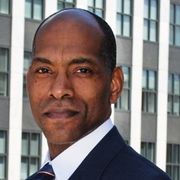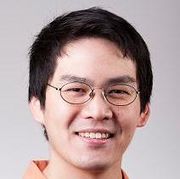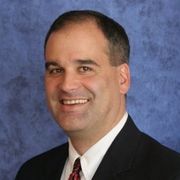The Complexity of Educational Ecosystems - Participants
From Santa Fe Institute Events Wiki
SFI ACtioN Topical Meeting
Co-hosted by Boeing
June 4th & 5th, 2018
Santa Fe Institute
Participants

Rensselaer Polytechnic Institute
Atsushi Akera is a historian of technology and an associate professor in the Department of Science and Technology Studies at Rensselaer Polytechnic Institute. In his early career, Akera focused on the history of computing, using the development of computers as a window into the American system of Cold War research and development. His first book, Calculating a Natural World: Computers, Scientists and Engineers during the Rise of U.S. Cold War Research, uses the history of computing to describe broad-based changes in the institutional infrastructure for research in the United States. More recently, Akera has focused on engineering education and engineering education reform.
Indiana University Bloomington
Katy Börner is the Victor H. Yngve Professor of Information Science in the Department of Information and Library Science, School of Informatics and Computing, Adjunct Professor at the Department of Statistics in the College of Arts and Sciences, Core Faculty of Cognitive Science, Research Affiliate of the Center for Complex Networks and Systems Research and Biocomplexity Institute, Member of the Advanced Visualization Laboratory, Leader of the Information Visualization Lab, and Founding Director of the Cyberinfrastructure for Network Science Center at Indiana University in Bloomington, IN and Visiting Professor at the Royal Netherlands Academy of Arts and Sciences (KNAW) in The Netherlands. She is a curator of the international Places & Spaces: Mapping Science exhibit. She holds a MS in Electrical Engineering from the University of Technology in Leipzig, 1991 and a Ph.D. in Computer Science from the University of Kaiserslautern, 1997. She became an American Association for the Advancement of Science (AAAS) Fellow in 2012.

The Boeing Company
Mark Cousino is the director of Learning Design and Technology, a part of Leadership, Learning, and Organizational Capability at The Boeing Company. In this role, his team is responsible for the global design and development of all new learning programs for the enterprise to include leadership, professional development, functional learning, industrial skills development, and knowledge management. His team is also responsible for the enterprise architecture of all learning technologies, digital strategies, and content curation. The Learning Design and Technology organization is also responsible for the enterprise learning strategies, policies, program design, delivery methods, strategic planning for innovation, industry intelligence and benchmarking.

American Society for Engineering Education
Norman Fortenberry is the executive director of the American Society for Engineering Education (ASEE), an international society of individual, institutional, and corporate members founded in 1893. ASEE is committed to furthering education in engineering and engineering technology by promoting global excellence in engineering and engineering technology instruction, research, public service, professional practice, and societal awareness. Previously, Fortenberry served as the founding Director of the Center for the Advancement of Scholarship on Engineering Education (CASEE) at the National Academy of Engineering (NAE). He served in various executive roles at the National Science Foundation (NSF) including as senior advisor to the NSF Assistant Director for Education and Human Resources and as director of the divisions of undergraduate education and human resource development. Fortenberry has also served as executive director of the National Consortium for Graduate Degrees for Minorities in Engineering and Science, Inc. (The GEM Consortium) and as a faculty member in the department of mechanical engineering at the Florida A&M University – Florida State University College of Engineering. Dr. Fortenberry was awarded the S.B., S.M., and Sc.D. degrees (all in mechanical engineering) by the Massachusetts Institute of Technology.
The Minerva Project
Joshua Fost completed a B.A. in neuroscience and philosophy at Bowdoin College, and then earned a Ph.D. in psychology and neuroscience at Princeton and was a postdoctoral fellow at Brandeis University. In 1998 he left academics to work as a consultant and later a Chief Technology Officer, working for companies ranging from internet startups to a $1 billion international commercial real estate company. In 2004, InfoWorld magazine recognized him as one of the top 25 CTOs in the United States. In 2005 he returned to academia, first teaching neuroaesthetics at Hampshire College, then becoming an assistant professor of philosophy at Portland State University in Oregon, where he taught and wrote at the intersection of cognitive science and philosophy. He also developed and taught a variety of courses in the university’s freshman and sophomore general education program, on topics including architecture, comics, the philosophy of science, robotics, and artificial life. He joined Minerva in the spring of 2015 and is currently the Associate Dean of Graduate Studies.

University of Rochester
Dahpon Ho's principal interests are maritime history and the ways that flows of trade, people, and goods have shaped life in China and East Asia from the early-modern period to the present. His first book project, Sealords Live in Vain, tells the story of how the maritime province of Fujian in southeast China was transformed by trade and piracy into an outlaw frontier in the 17th century. In future projects, he hopes to examine topics such as population mobility in Chinese history and also the rise of robotics and cybernetics in East Asia.

Purdue University
Tamara Moore’s research, which currently includes three National Science Foundation-supported projects, is centered on the integration of STEM concepts in K-12 and higher education mathematics, science, and engineering classrooms in order to help students make connections among the STEM disciplines and achieve deep understanding. Her research agenda focuses on defining STEM integration and investigating its power for student learning. She is creating and testing innovative, interdisciplinary curricular approaches that engage students in developing models of real world problems and their solutions. Her research also involves working with educators to shift their expectations and instructional practice to facilitate effective STEM integration.

The Boeing Company
Marcus Nance is a demonstrated leader, with 30 years experience in complex systems development in both defense and commercial business sectors. His accomplishments include development of domestic and international systems in launch, space, aviation, communications and networks. He also developed the first ever Enterprise technology portfolio and investment plan in systems engineering, software engineering, modeling, simulation, test and evaluation. His current assignment has him placed in a strategic Enterprise role driving step-function improvements using targeted problem solving and change management. His work has been recognized by our company Chief Technology Officer, the Federal Aviation Administration, as well as US and international customers. Outside work, he serves on the board of a non-profit, charitable organization in strategic planning and governance.

